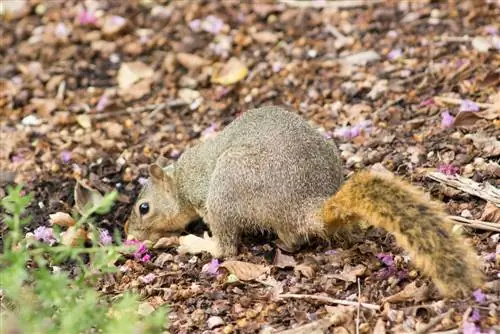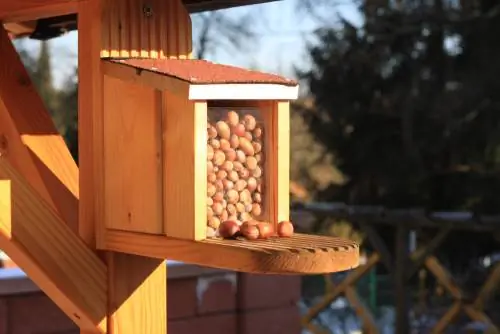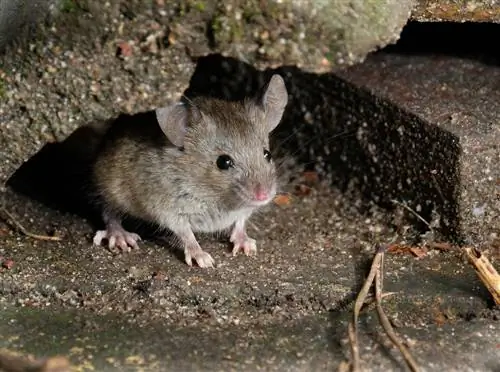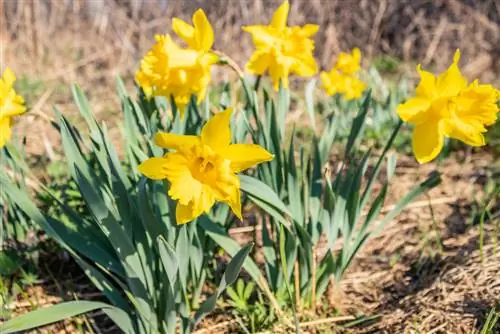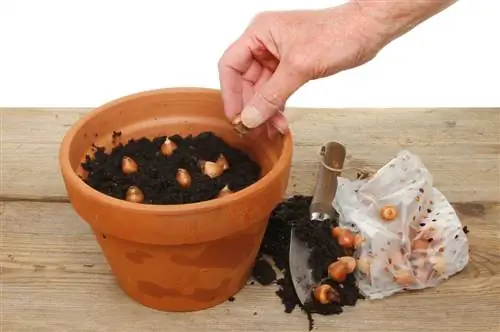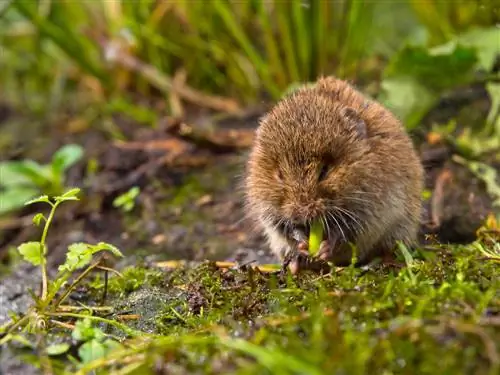- Author admin leonars@hobbygardeners.com.
- Public 2023-12-16 16:46.
- Last modified 2025-01-23 11:22.
The painstaking work is done, the flower bulbs have all been planted. But the next day the surprise awaits: they have been dug up again as if by magic. Undamaged, they lie obediently near the hole or scattered across the bed. Who was at work?
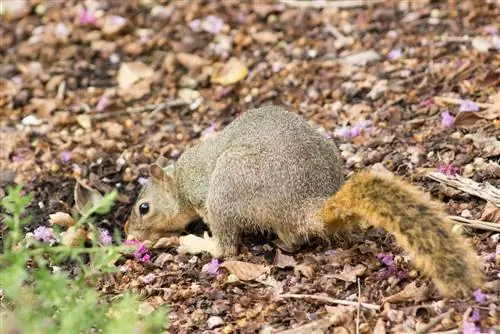
Which animals dig up flower bulbs?
Flower bulbs are often dug up by birds, squirrels, martens and voles. They usually look for food such as earthworms, horn shavings or buried nuts, while the bulbs themselves usually remain intact.
Birds
When planting flower bulbs, the soil is loosened. As a result, more earthworms come to the surface of the earth. These in turn are on the menu of some bird species. If you have observed blackbirds, thrushes and the like circling over this newly planted area, they are probably to blame for unearthed flower bulbs.
The animals are not interested in the flower bulbs themselves, only in the worms. If you then dig through the soil with your beaks, the flower bulbs will be “unintentionally” dug up.
Tip
If possible, stretch nets (€16.00 on Amazon) over the planted area so that the flower bulbs remain out of reach of birds. Shortly before budding you can remove the nets again.
Squirrel
Squirrels have often been observed digging up planted flower bulbs. Since these animals are now also native to the outskirts of cities, they are definitely among the suspects.
Maybe squirrels are just looking for nuts that they buried in the garden at some point. If you plant the onions earlier in autumn in the future, they can still root well on mild days and thus gain more support. This will help you survive future digging activities better.
Other rodents
Other rodents such as martens can sometimes dig up flower bulbs. However, since the onions are not eaten, the reason for the “excavation work” must be found somewhere else. Some gardeners have a guess:
- horn shavings are often added to the planting hole
- they act like a lure
- Rodents like horn shavings
- When you dig afterwards, the flower bulb is exposed
- watch out for telltale footprints
Tip
Water the planted bed after the
Setting the flower bulbs. Because many animals don't like digging in moist soil. Moisture also promotes rooting of the bulbs, making them more difficult to dig up again.
Voles
Voles are also rodents. But they work their way beneath the surface of the earth. They also leave hardly any of the flower bulbs left. With the exception of a few varieties that voles don't like, all flower bulbs are on their menu.

